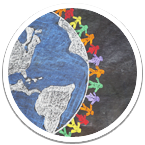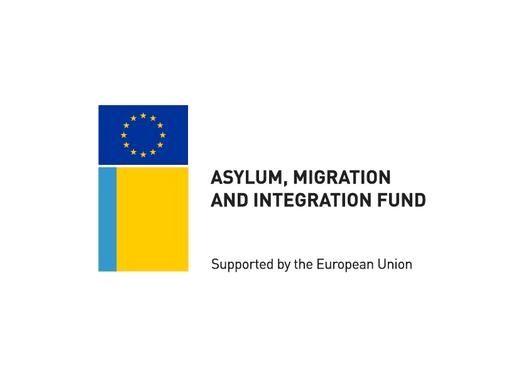Asylum seekers' health and services
.jpg/0fec17e0-9b59-47d7-9515-c0a0876a1b5e?t=1612449671133)
Since 2015, the amount of people seeking refuge in Finland has been at a historical high. The increased number of asylum seekers requires us to pay special attention to different aspects of asylum seekers' health. Inspite of certain health risks there are also protective factors that support the health and wellbeing of asylum seekers.
Special attention should be paid to certain factors concerning asylum seekers' health. These include infectious diseases and improving vaccination cover, oral health, mental health as well as sexual and reproductive health. The treatment of an asylum seeker's chronic illnesses may also have been interrupted, for example because of the need to flee. Asylum seekers’ wellbeing might also be threatened by factors such as the long asylum process, worry about their families and loved ones, and discrimination experienced in the new country.
Asylum seekers are relatively young and healthy when arriving in their new country. This can be considered as a resource that promotes and maintains health and wellbeing. Asylum seekers are often motivated to build new lives for themselves, and they feel able and willing to work. Some lifestyle choices can also protect and promote their health, such as avoiding alcohol.
Adult asylum seekers in Finland are entitled to urgent and essential treatment. Minor asylum seekers have a right to health care on the same grounds as municipal residents.
Both adults and children are entitled to essential social welfare services. All municipalities must guarantee that children, schoolchildren and pregnant women have access to public preventive health services:
- Asylum seeker children are directed to the municipality's child health clinic.
- As schoolchildren they have access to education and school health care.
- Pregnant women are directed to the maternity clinic.
Health care related reception services for asylum seekers
Participation in primary health care services is voluntary for asylum seekers. Asylum seekers are given information about the services they can receive and why these services are offered. Written consent is required when participating in screening tests, vaccinations and health examinations.
Health counselling
Two weeks after an asylum seeker has arrived in the country a meeting is organised at the reception centre. At this meeting, a public health nurse explains the asylum seeker about services that they are entitled to and the health care system in Finland, and gives a short description of key illnesses. At this meeting, any health issues can be discussed and questions can be asked through an interpreter.
Interview for an initial health assessment
A nurse or a public health nurse at the reception centre conducts an initial health interview with an asylum seeker within two weeks of their arrival in Finland. The purpose of this interview is to identify any needs for essential care and to assess the risk of infectious diseases, as well as to direct the asylum seeker to any further treatment they may need.
The TERTTU project developed the initial health examination protocol for asylum seekers. As part of the project, TERTTU Survey aimed to produce representative population-based survey data on the health, wellbeing and service needs of newly-arrived asylum seekers.
Developing the health examination protocol for asylum seekers in Finland: A national development project (TERTTU)
Screening tests for infectious diseases
The Ministry of Social Affairs and Health has provided instructions for preventing the spread of infections among asylum seekers. The health care professional carrying out the initial health check assesses the asylum seeker’s risk of having infectious diseases, for instance on the basis of their health history and the infectious disease situation in their country of origin. A stay in a refugee camp, for example, is a factor that influences the risk assessment. The diseases screened for include tuberculosis, hepatitis B, HIV, syphilis, and intestinal parasites.
The public health nurse at the reception centre refers the asylum seeker to screening tests based on the risk assessment.
Prevention of infectious diseases among migrants (Infectious diseases)
Vaccinations
The Finnish Institute for Health and Welfare recommends starting asylum seekers’ vaccinations as soon as they have arrived in the country. Asylum seekers’ vaccinations can be administered at the reception centre.
Urgent and essential medical care for adults
Urgent medical care belongs to everyone, regardless of where they live. Urgent medical care also includes urgent oral health care, mental health care, intoxicant abuse treatment and psychosocial support. A health care professional assesses each patient's need for essential care individually. Due to this approach, no general instructions concerning essential care can be given. Maternity clinic services are part of essential health care. An asylum seeker does not have a permanent personal identity code, which makes transferring client and patient data between care units more difficult.
Service providers
Depending on the number of residents they have, reception centres employ nurses and public health nurses. They coordinate the asylum seekers’ health services, carry out initial examinations, treat acute cases and organise health information sessions. Some centres are also visited by volunteer physicians, dentists, psychologists, psychiatric nurses as well as dental nurses and hygienists.
- The reception centre purchases the health services needed by asylum seekers from services providers that may be private (e.g. screening tests, general practitioner's visits) or public.
- Hospitals provide emergency care and specialised medical care.
- Municipalities provide maternity clinic, child health clinic and school health care services as well as emergency care and oral health care. Municipalities are responsible for controlling infectious diseases in their areas.
- The Centre for Torture Survivors in Finland in Helsinki and the Rehabilitation Centre for Torture Victims in Oulu specialise in the treatment of those subjected to torture.
The Finnish Immigration Service is responsible for organising these services and covers their costs. The Finnish Immigration Service directs, plans and supervises the implementation of asylum seeker's health care and monitors it together with the Finnish Institute for Health and Welfare.





